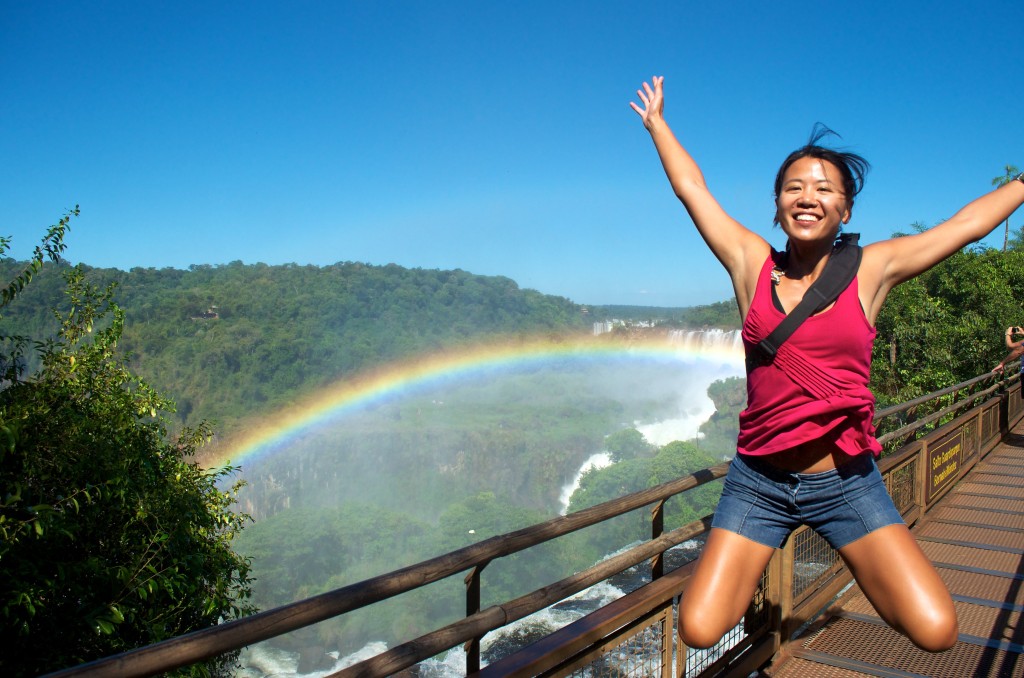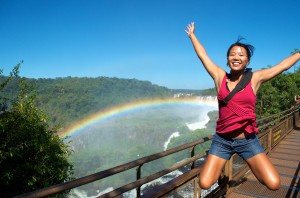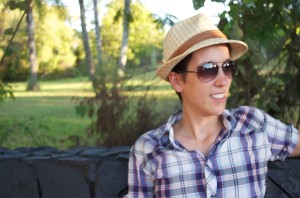This trip has plenty of reasons to make our families nervous. We are two women traveling in the developing world carrying thousands of dollars of computer and camera equipment. Where we’ve been, nurse robbing us would probably feed an entire family for a year. And let’s not forget the risk of traveling in countries where homosexual activity is illegal.
So it makes sense when people from home tell us all the time to “Be Safe.” At the airport in San Francisco, and Jenni’s dad told her, patient “Don’t trust anyone.” After all, bad things happen to good people all the time.
But it’s the warnings from locals in the countries that scare us the most. On our way to Bali, people warned us to get our luggage wrapped so as not to risk a life imprisonment sentence should someone try to transport drugs in our bags. In Nairobi (coined as ‘Nairobbery’), our taxi driver told us not to drink any alcohol pre-poured from bars because people might try to drug us and steal our belongings (or worse). While walking through Rio de Janeiro, we received multiple warnings from locals to keep our camera in our backpack or someone surely would rob us.
It’s easy to feel paranoid when you travel in developing countries. Take a peak at the US State Department’s warnings and you’d never leave U.S. soil. While traveling, we’ve had to assess several times whether our fear comes from real danger, imagined threats or even some of our own unconscious racism. But early on, we realized that we had to shift from an attitude of fear to one of trust if we wanted to make it through the year. Otherwise, we would never leave the hostel.
The thing is, people really are mostly good.
Each time we’ve gotten lost in the streets of South America, miraculously someone always appears to point us in the right direction. When we’ve left our computer and camera equipment in $15 hostel rooms throughout Asia, none of the cleaning personnel ever stole anything. When we’ve taken public buses in East Africa, other riders bickered on our behalf when ticket collectors tried to charge us double.
We’ve stopped sweating the small stuff, and we’ve recognized that there will always be mishaps. We’ve been a victim of a tourist scam in an Indian train station, we’ve broken computers and dropped cameras, and we’ve gotten lost about a million times. As hard as we’ve bargained, people have ripped us off. As much as we’ve tried to eat cautiously, we’ve spent full days sitting on toilets. We’ve had to cancel our plans to trek Mt. Everest base camp due to extreme weather, and we were forced to cut out two countries after running over budget.
But even when things have gone wrong, we’ve reminded ourselves that we’re safe. We haven’t had to seek medical care or return home for any family emergencies. Strangers have opened their homes to us, donated to Out & Around, and given us valuable travel advice.
It’s in our human nature to love, help one another, and smile. In particular, we’ve felt a special connection when meeting other queer people around the world. You truly can find “family” anywhere.
In the developing world, we can’t help but realize that we are within the top 1% of wealth in the world. Our blue U.S. passports give us the privilege of freely entering most borders. We’ve never experienced food or housing instability. We don’t have to worry about military coups or civil wars or economic collapse happening in our country. We’re not at risk of incarceration or death for being gay.
The glass is over-flowingly full. Living with optimism and without fear may be our biggest gain from these travels. We’re lucky. We’re lucky. We’re lucky. The more we can remember that, the more we want to reach out without reserve to help others. The more we connect with others, the less we fear. And that gives us the freedom to enjoy this great adventure all the more deeply.


